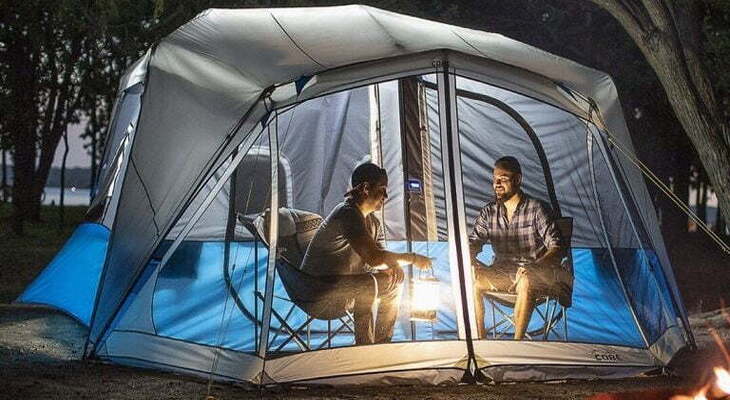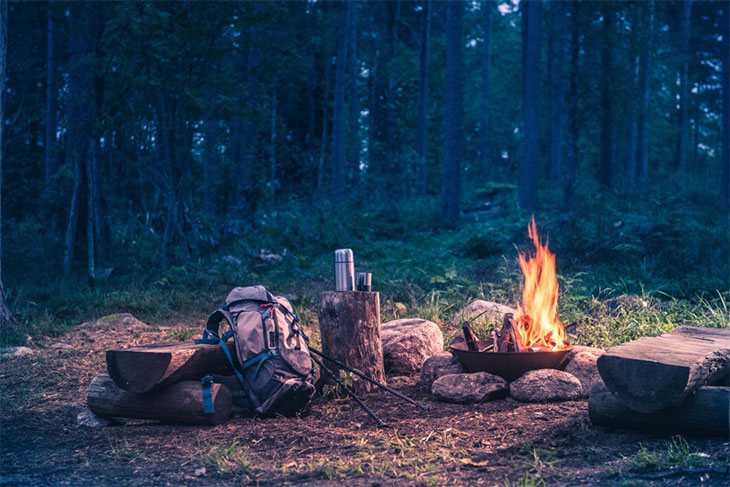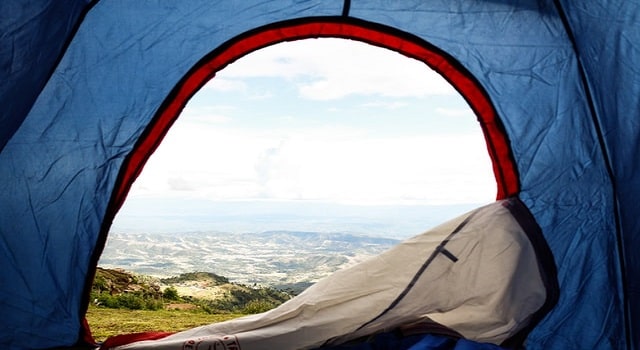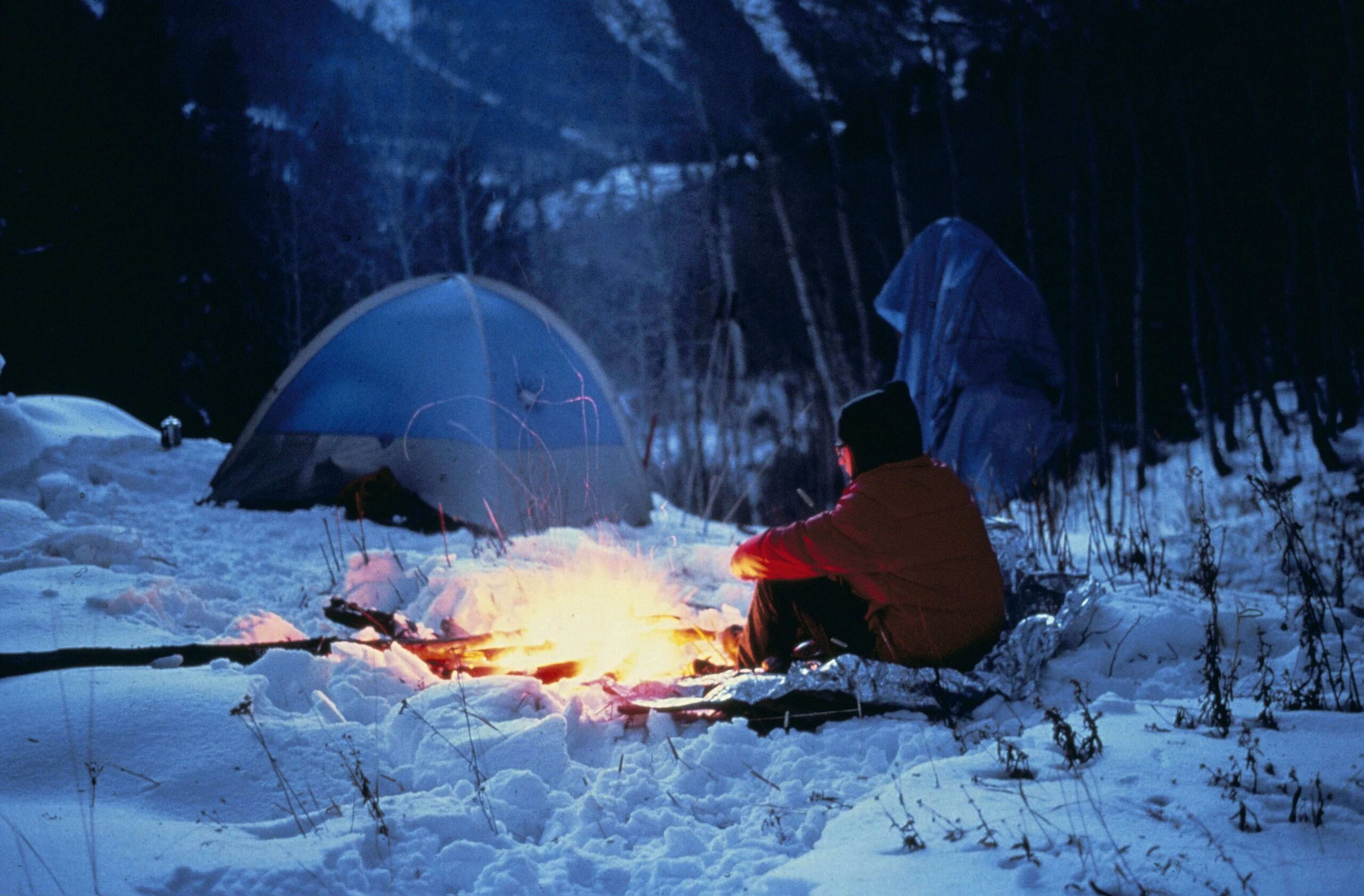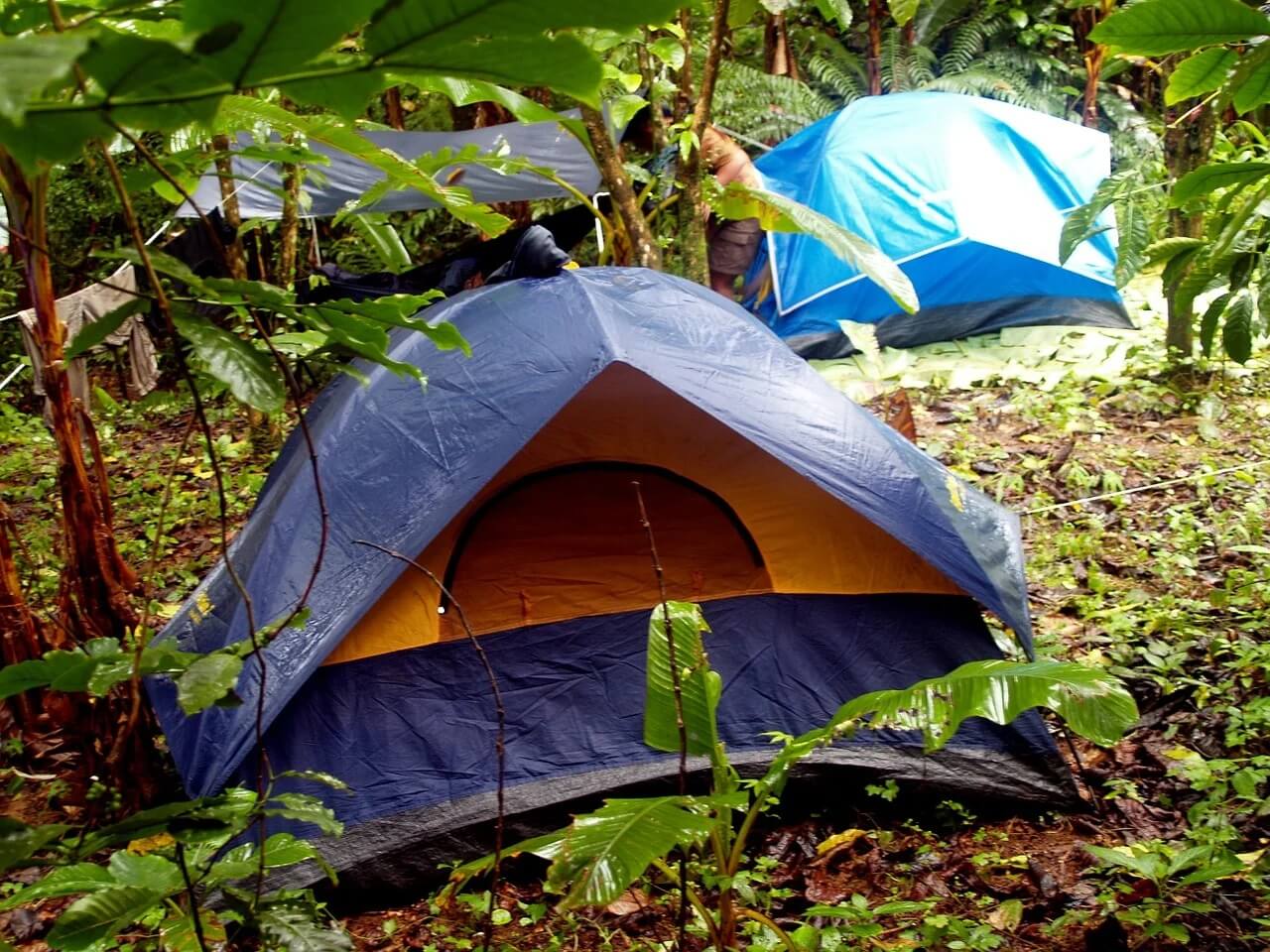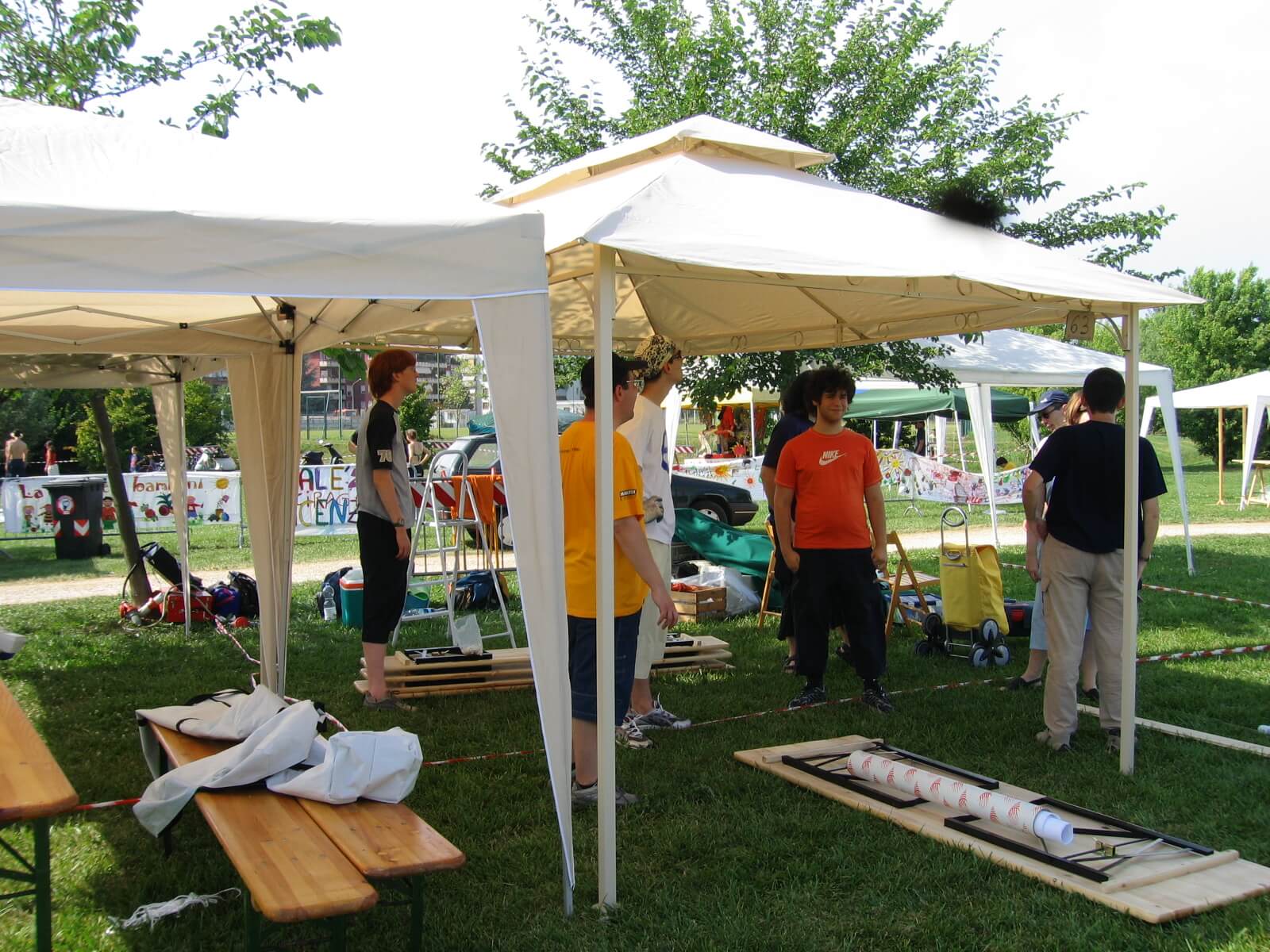
Some of the tents come with the labels of ‘four season tent. You can use them in summer, spring, fall, and winter. But you need to know that winter tents are different than other tents. They are not just tents. Winter tents are made in a certain way to withstand snow and winds. So, the question you need to ask yourself before you go for buying a winter tent is that how much snow can a tent withstand?
If you are setting out for snow camping, you will face extreme conditions. And you need to make sure that you have the right material and the structure.
Contents
How much snow can a tent withstand Guide
Every tent is different so it depends on the design, but there are a couple of things that generally help. The tent should be made of a sturdy material so the wind won’t tear it apart. Secondly, the tent should have a sufficient amount of insulation which will keep you warm even if it’s very cold.
There are tents that are designed to insulate very well and there are others that are designed for warm weather but not so much for cold weather. Some tents are very good for winter conditions, others are more for milder winter weather. If you will be camping in cold temperatures, then you’ll want a tent that is specially designed for cold weather.
Even if you are a seasoned camper or a die-hard backpacker, you can’t possibly know everything about every type of tent out there. I mean, it’s not like there is a book that tells you exactly what each tent can withstand, right?
You’re doing a pretty good job figuring out how much snow your tent can hold. Still, it’s always better to know how much snow the tent can hold, so you can be sure it’s going to hold up to the elements. Not only will you be aware that your tent can stand up to the snow, but you’ll also know how much snow is too much for your tent.
1. What is the best tent for snow?

There are two kinds of tents for snow that you can choose from, depending upon your requirements. They are the 3-season tents and the 4-season tents. The 3-season tents are suitable for use in mild weather conditions and are designed to withstand the snow well.
They are made from a waterproof and breathable material, and also have a waterproof rainfly to help keep you dry. The snow is usually not a problem for the 3-season tents as they are made to withstand moderate weather conditions.
2. How to choose the best snow tent for your needs.

People have a hard time choosing the right snow tent for their needs. They usually don’t know what to look for to make an informed decision. The snow camping experience is different for everyone. People have different needs and desires. A tent is a tent, right? Well…not exactly.
Not all snow tents are equal. And it’s not even about the price. It’s about the quality of the materials, the durability, and the ease of use. When you are snow camping, you want to be warm, comfortable, and safe. You want a tent that is well-insulated, lightweight, and easy to set up. You don’t want to have to worry about anything. The right snow tent makes a huge difference.
3. Why a Snow Tent is a smart investment.

If you live in a more temperate climate and are not used to dealing with extreme weather conditions, the idea of a snow tent may seem like a joke. However, if you live in the northern Midwest, where a blizzard can shut down airports, schools, and businesses for an extended period of time, a snow tent is a smart investment.
You can use it in the winter for camping or in the summer for a playhouse for your kids. It is not just a toy or some sort of a gimmick. It is a real tent that will protect you in any weather conditions.
4. How to choose the right tent?

A tent is one of the key pieces of equipment for a camping trip. They can be quite versatile, but you need to know which kind of tent is best for your trip. And there are several types of tents out there, so it can be confusing. There are backpacking tents, car camping tents, and the most common tent, the family tent.
Camping can be a great experience, but only if you have the right tent. The tent you choose depends on the type of trip you have in mind. For example, if you are backpacking, a lightweight tent will be all you need. On the other hand, if you are going camping with your family, you will need a big tent that can withstand storms.
5. The best snow tents reviews.

We’ve all seen them. You know, those people who go camping in the snowiest of places, most commonly known as the Alps. They have a lot of fun, and it’s obvious why. After all, a campfire, some food, and hot cocoa aren’t exactly a bad way to spend a few days. Now, I don’t mean to be rude, but what are they doing in a tent? That thing looks like it’s only made of nylon and some string.
I’ll tell you what they are doing in that tent: they are freezing their butts off. I know it’s a little harsh, but when you’re sleeping in a tent in the snow, it’s not exactly the most comfortable thing to do. It doesn’t matter how warm your sleeping bag is, it’s not going to be comfortable when you wake up with snow down your back.
So, this is a guide for those who want to camp in the snow, but don’t want to freeze to death. Now I know what you’re thinking: “I could just buy a better tent.” That is also a good idea, but I’m going to go over some of the best snow tents that money can buy!
FAQs:
Can you put a tent on snow?
There are a few ways to make a tent warm. The first is by putting a tent on snow. Snow will have a nice insulating value, although you’ll have to make sure your tent does not have any large holes in it. The second is to get an insulated tent.
One of the best examples of this type of tent is the 3-man tent by Coleman. This tent has an R rating of 8, which is pretty high. The last thing you can do to make your tent warm is by using a sleeping bag with an insulation factor of at least 20 degrees.
Can you use a 3 season tent in the snow?
If you’re going to use a tent in the winter you’re going to need to make sure that you have made improvements to it to prevent heat loss and to keep you warm.
A couple of tricks to keeping yourself warm are putting your tent up in a natural windbreak, so it doesn’t get as cold and using foam insulation, a foam sleeping pad, and a thermal bag for your sleeping bag.
The last trick is to bring a few heat packs for those really cold nights and to make sure that you have a tent that is insulated. A four-season tent is ideal for surviving the winter, but you can also choose to bring along a smaller tent, a tent that is insulated, or a tent heater.
Can you survive winter in a tent?
If you’re camping in the winter, you’ll have to deal with harsh weather conditions and you’ll have to adjust your sleeping strategies to fit the weather and your sleeping conditions.
Preparing early, including careful packing and planning, and having the right equipment will help you stay warm and comfortable on a camping trip in the winter.
How do you keep snow off your tent?
If you are outdoors in a winter climate, there are many ways to keep the cold out of the tent. The first is to use a tent with a windproof and waterproof floor. Another is to protect the bottom of the tent with a footprint.
By doing this, you will keep the bottom of the tent dry and prevent the insulation from being damaged. Another way to protect your tent from snow is to pull a sheet of plastic over it each time you go in and out. You can also buy a heater and a space heater, which can keep the temperature inside your tent at the right temperature.
Another way to stay warm is to bring a thermal blanket to sleep in. Another way to be protected from the cold air is to build a natural windbreak around the tent. If you don’t want to spend that much money on a new tent, bring a thick wool blanket to sleep on.
Conclusion:
If you are planning to go camping this winter, you may be wondering if your tent can withstand the winter weather conditions. The truth is, there is no single answer to this question. Rather, it is best to evaluate a few different factors that will determine How much snow can a tent withstand.
